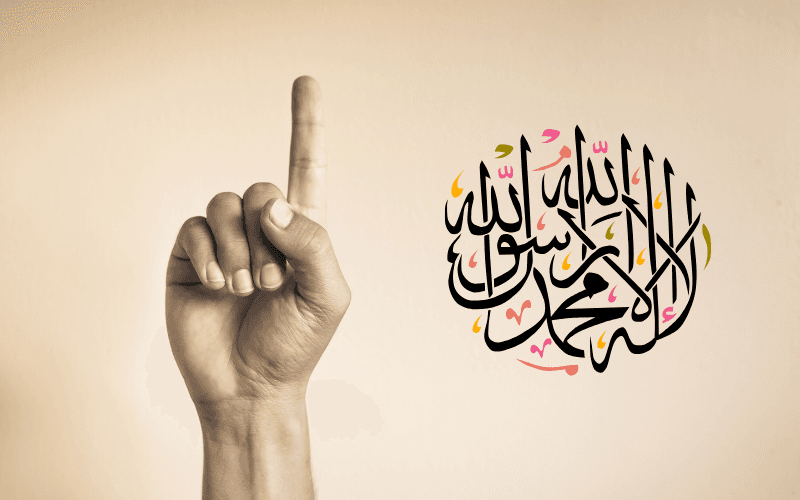Tawhid in Islam: The Foundation of All Worship and Success

In the journey of life, we all strive for success; however, for a believer, true success is rooted in understanding the principle of Tawhid in Islam. Although people follow countless paths to achieve their goals, a Muslim finds lasting fulfillment by following the path Allah (SWT) has shown. Indeed, adhering to the spiritual roadmap that Allah has laid out for us opens the golden gates of success.
Consequently, let’s explore this divine path to success, drawing from the wisdom of respected Islamic scholars like Dr. Abdul Muhsin bin Muhammad Al Qasem, the Imam and Khateeb of the Prophet’s Mosque (Masjid an-Nabawi).
The Foundations of Accepted Worship
A servant’s true success and fortune lie in the complete and sincere worship of Allah. For this worship to be correct and spiritually rewarding, it must meet two fundamental conditions:
- Ikhlas (Sincerity): First, a person must perform the act solely for the pleasure of Allah.
- Itteba (Following the Sunnah): Second, one must perform the act according to the methods the Prophet Muhammad (peace be upon him) showed.
If an act of worship is not for Allah’s satisfaction, it consequently loses its spiritual value. The Quran says:
وَقَدِمْنَاإِلَىٰمَاعَمِلُوامِنْعَمَلٍفَجَعَلْنَاهُهَبَاءًمَّنثُورًا
“And We will proceed to what they have done of deeds, so We will make them [as] scattered dust.”
(Surah Al-Furqan: 23)
Similarly, Islamic teachings emphasize that Allah may not accept any act of worship that is not aligned with the Sunnah of the Prophet (ﷺ). Regarding this, the Messenger of Allah (ﷺ) said:
“Whoever performs an act that is not in accordance with our matter (our religion), it will be rejected.”
(Sahih Muslim, Hadith: 4589)
Therefore, Allah considers only deeds done with sincerity and in accordance with the Sunnah as worthy, making one eligible for the reward of Jannah al-Firdaws. (See Surah Al-Kahf: 107)
The Bedrock of Faith: Understanding Tawhid in Islam
The entire structure of faith in Islam rests upon the powerful declaration: ‘La ilaha illallah’ (لَا إِلَٰهَ إِلَّا ٱللَّٰهُ) — “There is no deity worthy of worship except Allah.” Without understanding and internalizing both parts of this statement, a person’s faith journey subsequently remains incomplete.
- ‘La ilaha’ (The Negation): This is the rejection of all false deities and freeing oneself from worshipping anything other than the Creator.
- ‘illallah’ (The Affirmation): This is the affirmation that Allah alone is the one true God and worshipping Him exclusively.
Allah explains this, saying:
فَمَنيَكْفُرْبِالطَّاغُوتِوَيُؤْمِنبِاللَّهِفَقَدِاسْتَمْسَكَبِالْعُرْوَةِالْوُثْقَىٰ
“So whoever disbelieves in false deities and believes in Allah has grasped the most trustworthy handhold with no break in it.”
(Surah Al-Baqarah: 256)
Indeed, one cannot overstate the importance of Tawhid; it stands as the most crucial matter in Islam. In contrast, the most significant spiritual pitfall is Shirk (associating partners with God). When someone asked the Prophet (ﷺ) what the greatest sin was, he replied:
“To set up a rival unto Allah, while He is the One who created you.”
(Sahih al-Bukhari: 4477)
The Blessings of Tawhid: Security in This Life and the Hereafter
Whoever establishes pure Tawhid as Allah has guided, as a result, will find security in their life, wealth, family, and society. Allah says:
الَّذِينَآمَنُواوَلَمْيَلْبِسُواإِيمَانَهُمبِظُلْمٍأُولَٰئِكَلَهُمُالْأَمْنُوَهُممُّهْتَدُونَ
“They who believe and do not mix their belief with wrongdoing (i.e., Shirk) – those will have security, and they are the [rightly] guided.”
(Surah Al-An‘am: 82)
Moreover, other rewards of Tawhid include:
- Forgiveness of Sins: Pure Tawhid can be a means of erasing past sins.
- Protection from Hellfire: Whoever sincerely says ‘La ilaha illallah’ seeking Allah’s pleasure, Allah will protect him from the Fire. (Bukhari & Muslim)
- Entry into Paradise without Reckoning: Whoever perfects their Tawhid will enter Paradise without being held to account. (Bukhari & Muslim)
Understanding Shirk: The Greatest Obstacle on the Path to Success
The spiritual consequences of engaging in Shirk are significant. For example, it can nullify the reward of good deeds and create a barrier to salvation. For instance, Allah addressed His own Prophet (ﷺ) with this stern reminder:
لَئِنْأَشْرَكْتَلَيَحْبَطَنَّعَمَلُكَوَلَتَكُونَنَّمِنَالْخَاسِرِينَ
“If you should associate with Allah, your work would surely become worthless, and you would surely be among the losers.”
(Surah Az-Zumar: 65)
Indeed, Allah does not promise forgiveness for the spiritual error of Shirk if a person passes away upon it. Allah says:
إِنَّاللَّهَلَايَغْفِرُأَنيُشْرَكَبِهِوَيَغْفِرُمَادُونَذَٰلِكَلِمَنيَشَاءُۚ
“Indeed, Allah does not forgive association with Him, but He forgives what is less than that for whom He wills.”
(Surah An-Nisa: 48)
For this reason, even the great Prophet Ibrahim (Abraham) prayed that Allah would protect him and his children from this spiritual pitfall. (See Surah Ibrahim: 35)
Guidance on Common Practices
Shirk is not limited to just worshipping idols. In reality, it can manifest in many forms, and Islam encourages every Muslim to avoid them.
- Seeking Help from the Deceased or Saints The deceased cannot hear or help. Therefore, Islamic guidance encourages calling upon Allah alone, as He is the All-Hearing….
- Magic, Astrology, and Fortune-Telling Islam discourages involvement with black magic. Furthermore, visiting a fortune-teller or astrologer and believing their words can negatively impact one’s faith. The Prophet (ﷺ) cautioned that whoever does so has distanced themselves from what was revealed to him. (Sunan Abu Dawud, Hadith: 3904)
- Amulets, Talismans, and Charms Islam advises against the practice of wearing amulets, bracelets, or strings for protection, as it can shift reliance from Allah to an object. Regarding this, the Prophet (ﷺ) said:…
- Making Vows or Sacrificing Animals for Other Than Allah A vow is an act of worship, so a person should only make it for Allah. Similarly, scholars strongly condemn sacrificing an animal for the pleasure of anyone other than Allah. (Sahih Muslim, Hadith: 1974)
- Swearing by Other Than Allah Islam discourages taking an oath in the name of one’s parents, a prophet, the Kaaba, or any created being. On this topic, the Prophet (ﷺ) said, “Whoever swears by other than Allah has strayed towards disbelief or polytheism.” (Tirmidhi, Hadith: 1535)
Reflecting Tawhid in Daily Life
Consequently, a believer’s life should reflect Tawhid in every aspect.
- Trust in Allah (Tawakkul): While taking permissible measures, one’s heart must ultimately rely solely on Allah for the results.
- Facing Calamities: When faced with hardship, a believer should not panic but instead seek help only from Allah.
- Beware of Showing Off (Riya): The Prophet (ﷺ) referred to showing off good deeds as ‘minor Shirk.’ Thus, every good deed should be done to please Allah alone.
- Earning a Lawful (Halal) Livelihood: Earning a Halal income is a prerequisite for the acceptance of worship and also brings blessings into one’s life.
- Do Not Mock the Religion: Finally, making fun of Allah, His verses, or His Messenger is considered an act that removes a person from the fold of faith. (Surah At-Tawbah: 65-66)
Self-Purification and Social Purity
- Guarding the Gaze Lowering your gaze from what is forbidden is a sign of a pure heart. For this reason, Allah says:…
- Hijab and Modesty The Hijab is a woman’s honor and adornment. In essence, it protects both her and society from corruption (Fitnah). In the Quran, Allah commanded the believing women to cover themselves with their outer garments….
- Abstaining from Heedless Entertainment Certain types of music and musical instruments can create heedlessness in the heart, in turn distracting a person from the remembrance of Allah and the Quran. The Prophet (ﷺ) foretold that a time would come when people from his Ummah would try to consider such things lawful. (Sahih al-Bukhari, Hadith: 5590)
Conclusion: The Key to Success is in Your Hands
Ultimately, true, everlasting success lies in holding firmly to the pure concept of Tawhid in Islam and avoiding all paths that lead to Shirk. You should turn to your Lord, Allah, in every aspect of your life. By doing so, Allah will rectify all your affairs, and you will achieve success in this world and the Hereafter. May Allah accept us all as true believers. Ameen.
Frequently Asked Questions
What are some of the blessings of Tawhid?
Some of the important blessings of Tawhid include:
- Security: Those who establish pure Tawhid will find security in their life, wealth, family, and society.
- Forgiveness of Sins: Pure Tawhid can be a means of erasing past sins.
- Protection from Hellfire: Whoever sincerely says 'La ilaha illallah' seeking Allah's pleasure will be protected from the Fire.
- Entry into Paradise without Reckoning: Whoever perfects their Tawhid will enter Paradise without being held accountable.
What is Shirk, and why is it considered the greatest sin?
Shirk is the act of associating partners with Allah. It is the most significant spiritual pitfall in Islam. Allah does not forgive Shirk if a person dies upon it. Shirk can nullify the reward of good deeds and create a barrier to salvation. Allah even sternly reminded His own Prophet (ﷺ) that if he were to associate partners with Him, all his work would become worthless.
What actions can be considered Shirk?
Shirk is not limited to just idol worship; it can manifest in many forms. Examples include:
- Seeking help from the deceased or saints.
- Believing in magic, astrology, or fortune-telling.
- Wearing amulets, talismans, or charms for protection.
- Making vows or sacrificing animals for anyone other than Allah.
- Swearing by other than Allah (e.g., parents or the Kaaba).
How does Tawhid reflect in a Muslim's daily life?
A believer's life should reflect Tawhid in every aspect. Some examples of this are:
- Trust in Allah (Tawakkul): While taking permissible measures, one's heart must ultimately rely solely on Allah for the results.
- Facing Calamities: When faced with hardship, a believer should seek help only from Allah.
- Avoiding Showing Off (Riya): Every good deed should be done solely to please Allah.
- Earning a Lawful (Halal) Livelihood: Earning a Halal income is a prerequisite for the acceptance of worship.
- Respecting the Religion: Never making fun of Allah, His verses, or His Messenger.









